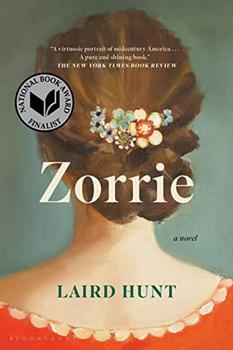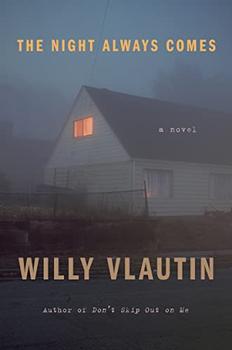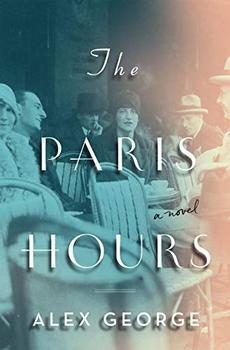Summary | Excerpt | Reading Guide | Reviews | Beyond the book | Read-Alikes | Genres & Themes | Author Bio

In Zorrie, Laird Hunt takes readers through decades of his main character's struggles, joys and dreams — both realized and sacrificed. Orphaned in early 20th-century Indiana, when both her parents succumbed to diphtheria, Zorrie was left to be cared for by an aunt who her father had described as having "drunk too deeply from the cup of bitterness." An emotionally cold and intensely demanding woman more interested in raising a laborer than a child, Zorrie's aunt never allowed her niece to have fun, or even mourn the death of her family.
Despite her guardian's cruelty, Zorrie grows into a kind and hopeful young woman who is determined to find the best in any situation. When her aunt dies, leaving her nothing — not even the home she was trained to meticulously maintain, she is forced to quickly find a way to make a living in the middle of the Great Depression. Freed from emotionless days of torment and instilled with an indelible work ethic, she takes whatever odd jobs she can, until she finally lands in Ottawa, Illinois, at the Radium Dial company. She labors for a while as a "ghost girl" (see Beyond the Book), painting radium on clocks. She is more reserved than her counterparts at the dial company, but her sweet-natured personality endears her to the other women. It's not long before she learns how to cut loose and enjoy fun and friendships with them.
Eventually, Zorrie feels herself pulled back to Indiana. Upon returning to her hometown, and finding everything quite changed, she is once again jobless, homeless and alone. Owing to her good nature and willingness to work, she is taken in by a kind old couple, given a room and introduced to their son, Harold. After a brief courtship, she and Harold marry. Zorrie experiences a period of great joy with her husband, and allows the sorrows of her past to fade. However, she soon finds herself visited by a series of losses and heartbreaks that leave her to continue making her way through the world on her own, albeit with the help of friends and strangers alike. In the end, it is her indomitable will, mental fortitude and warm memories of those she's loved that carry her and enable her to find peace.
In just 176 pages, Hunt gives us the story of a life, a place and an era that is remarkably similar to our present moment — as it deals with an intersection of personal and social issues relevant to today including unemployment, loss of life and daily uncertainty. The novel touches upon feelings of isolation, a longing for past joys and regret over choices made. Readers will be able to relate to Zorrie's struggles, and will feel a sense of familiarity with situations of hardship, grief and perseverance through the unknown. Most importantly, those struggles occur against a backdrop of perpetual hope and the will of a woman who never allows life to take away her kindness, compassion, grace and determined spirit.
Hunt's language is simple, at times almost too sparse, yet elegant and filled with intensity. He presents a story that is concise but captivating and emotionally expansive. The speed with which he introduces and ends intersecting storylines can be a bit much, and Zorrie might have been well served with an additional 75 pages. Still, this quiet, unassuming story will quickly take hold of you and not let go.
The author's razor-sharp prose allows the novel to do all the work for readers and gives Zorrie the room she needs, as a character, to really shine. His ability to create both melancholy and joy with such understated writing is truly a wonder. An encapsulated look at the triumph of the human spirit and the power of love, Zorrie is the perfect book for a weekend read in the final cold weeks of winter.
![]() This review was originally published in The BookBrowse Review in February 2021, and has been updated for the
November 2022 edition.
Click here to go to this issue.
This review was originally published in The BookBrowse Review in February 2021, and has been updated for the
November 2022 edition.
Click here to go to this issue.

If you liked Zorrie, try these:

by Willy Vlautin
Published 2022
Award-winning author Willy Vlautin explores the impact of trickle-down greed and opportunism of gentrification on ordinary lives in this scorching novel that captures the plight of a young woman pushed to the edge as she fights to secure a stable future for herself and her family.

by Alex George
Published 2021
Told over the course of a single day in 1927, The Paris Hours takes four ordinary people whose stories, told together, are as extraordinary as the glorious city they inhabit.
He who opens a door, closes a prison
Click Here to find out who said this, as well as discovering other famous literary quotes!
Your guide toexceptional books
BookBrowse seeks out and recommends the best in contemporary fiction and nonfiction—books that not only engage and entertain but also deepen our understanding of ourselves and the world around us.